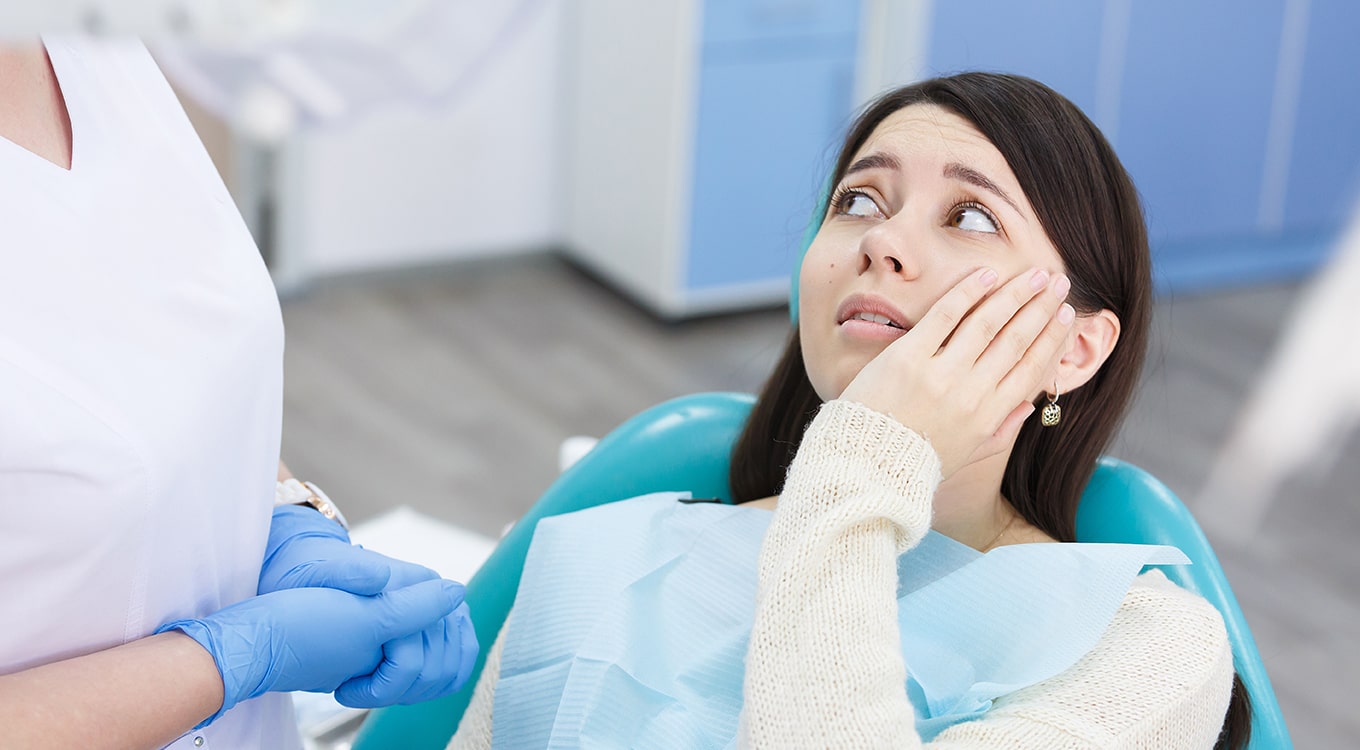24/7 Patient care team available by phone. Call to schedule an emergency appointment within 24 hours.
Cash, Credit/Debit card, Careington, Care Credit
Acceptable insurances are determined in the office at time of visit.
Toothache, root canals, tooth extractions, infected or distressed teeth, broken or damaged teeth, veneers, crowns, fillings, chipped teeth, missing teeth, dental implants, and bridges
24/7 Patient care team available by phone. Call to schedule an emergency appointment within 24 hours.
Cash, Credit/Debit card, Careington, Care Credit
Acceptable insurances are determined in the office at time of visit.
Aspen Dental is here when you're experiencing a dental emergency and finding professional care can't wait. We accept walk-in's or scheduled appointments for same-day care. Our team of emergency dentists can help you find the right solution that brings relief‐all in a compassionate & caring setting. If you have excessive pain, sudden tooth loss, or unmanageable bleeding and discomfort, don't wait, seek emergency dental services today!
Experiencing a toothache is always a pressing matter that requires immediate attention. Usually, your first point of contact would be your regular dentist in case of dental emergencies.

When you require urgent dental care in Kansas City, KS, you can rely on an emergency dentist to assist you. They are crucial in providing the necessary care during unforeseen dental emergencies.
Emergency dental care primarily addresses dental conditions that require immediate attention. The goal is to mitigate the risk of infection, alleviate intense pain, and reduce the strain on hospital emergency rooms.
Knowing how to handle a dental emergency can significantly impact the outcome of your teeth. That's why emergency dentists at Aspen Dental in Kansas City, KS, advise patients to keep the contact information of an emergency dentist readily available. This ensures quick access to professional assistance in an emergency, increasing the chances of saving your teeth.
Maintaining a regular dental hygiene routine is simple yet effective in avoiding dental emergencies.
Practicing good oral hygiene habits can help you promote the health and strength of your gums and teeth and reduce the possibility of dental issues. Brushing your teeth thoroughly twice daily helps eliminate harmful bacteria and plaque buildup, while fluoride toothpaste strengthens your enamel.

Flossing daily helps prevent debris from getting trapped between your teeth and keeps your gums in good condition. These essential practices play a crucial role in preventing unexpected dental emergencies.
If you have intense dental pain and require immediate dental assistance in Kansas City, KS, you can contact Aspen Dental at 844-511-2819.
A: Swollen and bleeding gums are a sign of gum disease for most people, and it is not painful. Early diagnosis can help you reverse it.
A: Few women have gum problems at the time of menopause, pregnancy, menstruation, and puberty. Pregnancy gingivitis occurs in the 2nd or 3rd month of pregnancy. A person should not stop brushing their teeth, as it may happen due to hormonal changes; consult your dentist.
Office Name
Aspen Dental Kansas City, KS
Dentist Name
Multiple Dentists Available
Office Address
7524 State Ave
Kansas City, KS 66112
Languages Spoken
English
Emergency Weekend Dentist
Emergency Weekend Dentist
Emergency Weekend Dentist
Emergency Weekend Dentist
Emergency Weekend Dentist
Emergency Weekend Dentist
Emergency Weekend Dentist
Emergency Weekend Dentist
Emergency Weekend Dentist
Emergency Weekend Dentist